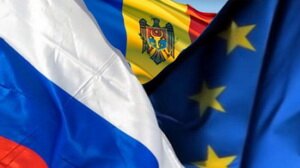
A characteristic feature of the current political processes in Central Europe is sharpening of the struggle between the European Union and Russia for influence in the former Soviet Union countries of Democratic Choice, namely Ukraine, Moldova and Georgia. On the one hand it concerns activation of the EU's measures for promoting European integration of the countries concerned, and on the other —the full capacity of the actions of Russia for involving them in the Customs Union and other integration structures at post- Soviet territories.
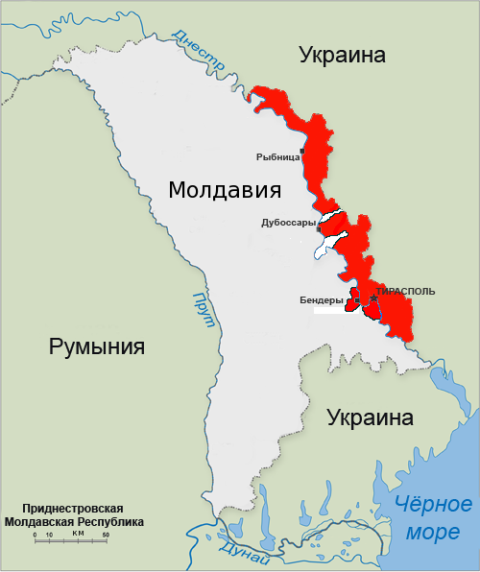 In its earlier publications “Borysfen” has already touched upon the issue of this struggle around Ukraine. An equally urgent situation arises around Moldova, which is also located at the intersection of interests of the EU and Russia.
In its earlier publications “Borysfen” has already touched upon the issue of this struggle around Ukraine. An equally urgent situation arises around Moldova, which is also located at the intersection of interests of the EU and Russia.
Thus, since the spring — early summer of this year, has been marked a substantial increase of the attention of the EU's management to issues of signing an Agreement on the Association between the EU and Moldova, as well as creation of a deep and comprehensive free trade area. Favorable conditions for this are being created by a solution of the political crisis in Moldova within the framework of reformatting in June this year of the ruling coalition “For European Integration” and the election Yu. Lyanke (a representative of center-right forces) Prime Minister of the country.
 |
|
Yu. Leanca, the 9th Prime Minister of Moldova since April 25, 2013 http://ru.wikipedia.org/ |
In particular, by the results of the 17th Session of the Parliamentary Cooperation Committee the EU – Moldova, on June 21 this year, MEPs called on Heads of States and Governments of the EU member-countries to paraph the Agreement prior to the summit of “Eastern Partnership” of the EU in November this year in Vilnius. Moldova's achievements in the fulfillment of conditions of the Agreement with the European Union were pointed out by the EU High Representative for Foreign Affairs and Security Policy Catherine Ashton during her visit to Chisinau on July 9 this year. At this, Ashton expressed her confidence in the possibility of signing the document as early as 2014 and the beginning of its practical implementation.
 |
|
Catherine Ashton in Chisinau: summit in Vilnius — an occasion to strengthen relations with the EU Foto: Рамин Мазур http://www.timpul.md/ |
The EU leaders also confirmed the conditions and criteria for European Integration of Moldova, which include: deepening democracy in the country (including stopping government intervention into conflicts between different political forces), activation of measures for overcoming corruption, strengthening guarding of the country's borders, and solving the Trans- Dniester problem. Besides, the EU officials were in favor of transformation of the existing format of the peacekeeping operation in Trans- Dniester into a civilian mission that will provide the opportunity to begin the withdrawal of Russian troops from the region (according to Russia's obligations at the Istanbul OSCE summit in 1999).
 |
| Moldovan Foreign Minister Andrei Stratan, speaking at the UN, said that the Russian peacekeepers, staying in the unrecognized republic of Trans- Dniester, should be replaced with a "multinational civil mission" http://www.segodnya.ua/ |
As part of the above mentioned conditions of the European Union, the Moldovan side has shown a willingness to discuss all issues of settling the Trans-Dniester problem in the “5+2” format (Moldova, Trans-Dniester, Russia, Ukraine, OSCE, U.S. and EU) negotiations. Besides, the Moldovan government decided to strengthen the protection of the administrative border of the self-proclaimed Trans-Dniester Moldovan Republic by setting specific migration positions.
Moldova's efforts on its way to the EU are being actively supported by Romania, which implements the concept of gradual reintegration of the two countries within the framework of the European Union integration mechanisms. Thus, the mentioned above concept provides for Moldova to join the EU in 10-12 years after the creation of appropriate conditions in the country.
 |
|
Romanian President Traian Basescu, who visited Moldova, was asked to continue his political career there. The suggestion was made by the Mayor of Chisinau Dorin Chirtoaca http://podrobnosti.ua/ |
In this context, of an exemplary importance was the visit to Chisinau of the President of Romania T. Basesku on the 17th of July this year. During his talks with the leadership of Moldova, the main attention was paid to the prospects of signing the Association Agreement between the EU and Moldova, as well as the plans of the Romanian-Moldovan cooperation in political, economic, security and humanitarian spheres. The President of Romania pointed out the progression of Moldova in the implementation of the European policy of the country and expressed confidence in achieving concrete progress in this direction already at the Eastern Partnership Summit in Vilnius.
Besides, emphasis was placed on the need to create a reliable economic basis for Moldova's European integration. Such a basis should become implementation of a number of bilateral projects, including those for incorporation of energy networks of Romania and Moldova through the construction of Felchu – Hoteshty power lines and Chişinău – Iasi gas pipeline, and integration of transport infrastructure between the two countries through the introduction of the bridges over the Prut River in the regions of Ungheni and Leka. This will significantly reduce Moldova's dependence on Russian energy carriers and will reduce the Russian influence.
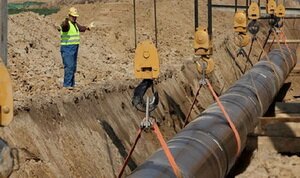
|
|
Moldova will give Romania the right to choose a company for construction of a part of the Ungheni- Iasi gas pipeline across the Prut http://point.md/ |
Along with this, in humanitarian terms have been concluded bilateral agreements on training Moldovan students in higher educational institutions of Romania. Thus, in 2013-2014 years the number of scholarships provided by Romania, is expected to increase from 5.5 to 6000. In the nearest future will also be solved all issues related to empowerment of the “local border traffic” between Romania and Moldova, which provides for simplification of border crossing by residents of border areas.
At the same time, T. Basescu supported the position of Moldova in settling the Trans- Dniester issue, and accused Russia of violating its international obligations on the withdrawal of Russian troops from Trans- Dniester. According to the President of Romania, in this context, are indicative the measures for re-arming Russian troops in Trans- Dniester, confirming Moscow's plans to maintain its military presence in Trans-Dniester for a long time.
In this situation the main focus of security of Moldova and of the process of its European integration is the development of cooperation with NATO and the EU in the security sphere, primarily through deepening military ties with Romania.
In its turn, the convergence of Moldova with the EU and deepening cooperation between Moldova and Romania cause an extremely negative reaction of the Russian Federation, which sees it as a threat to its own interests. In view of the foregoing, Russia implements measures (the so-called “Anti-Vilnius” plan) aimed at blocking the signing of the Agreement between the EU and Moldova and, in general, the process of the country's European integration.
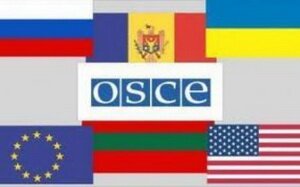 |
|
The next negotiations on settling the Trans-Dniester issue in the "5+2" format will be held on October 3 in Brussels http://www.trm.md/ |
First of all, as part of such measures, Russia continues to create obstacles to the settlement of the Trans- Dniester conflict, as the main challenge for Moldova's joining the European Union. Thus, the Russian side supports the Trans-Dniester Moldovan Republic's leadership's position on prematurity of discussing political aspects of solving the Trans-Dniester problem at the negotiations in the “5+2” format, which actually translates the negotiation process into the plane of minor issues.
Besides, Russia and TMR take a common position in counteracting Chisinau's measures for strengthening the administrative border between Moldova and Trans-Dniester. Thus, in response to the Moldovan side's decision to set migration positions at the border with TMR, the leadership of the self-proclaimed republic adopted the Law on the State Border of Trans-Dniester, which includes Tiraspol's unilateral actions for guarding the border of the self-proclaimed republic as an independent state.
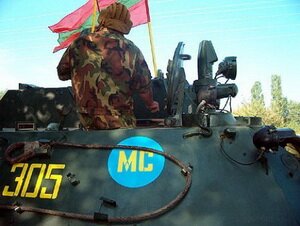 |
| Trans-Dniester autonomy intends to bring peacekeepers to Bendery http://vfokuse.md/ |
At the same time, the government of the TMR is taking measures for artificial sharpening of the situation in the Security Zone of the Trans-Dniester region of the Republic of Moldova, creating a real threat of breakdown of talks on the Trans- Dniester settlement and, accordingly, the appearance of significant obstacles in the process of European integration of Moldova. In particular, for this purpose the Trans- Dniester side has activated its provocative actions against Moldovan Police in Bendery, where several agencies of the Ministry of Internal Affairs of Moldova still work.
Besides, the Administration of the President of TMR has initiated the issue of transfer of the Parliament of the self-proclaimed republic to Bendery. In the case of the plan coming true, to the city will be sent additional subunits of Trans-Dniester Militia to guard the legislative body of TMR, which will change the balance of forces in the Security Zone and will make Moldova take actions in response. The result will inevitably be increased potential for conflict in Bendery.
Along with this, a significant problem can be created by TRM's leadership's attempts to establish control over Moldovan settlements on the left bank of the river Dniester around Dubossary. Recently, representatives of the Trans- Dniester authorities keep raising this question. Moreover, according to the Law on the State Border of Trans- Dniester, the mentioned settlements have been unilaterally included in the self-proclaimed Trans- Dniester Moldovan Republic.
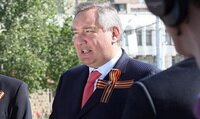 |
| Deputy Prime Minister of Russia Dmitriy Rogozin visited Chisinau on May 9 and promised to sort out the promotion of policy of denigration of the Victory Day in Moldova http://point.md/ |
Such actions of TMR are indirectly supported by Russia, interested in strengthening tension in Trans-Dniester also in terms of finding grounds for the long-term presence of Russian troops in the region.
Against this background, within the framework of the so-called policy of “soft power”, the Russian Federation has activated information-propaganda measures to discredit Chisinau's efforts for European integration of Moldova and to draw Moldova into the Customs Union of Russia, Belarus and Kazakhstan. One of the greatest among such measures, was the celebration of Victory Day in Chisinau on the 9th of May this year, which was organized by the Embassy of the RF in Moldova. Speaking at the opening of the meeting, Deputy Prime Minister of Russia D. Rogozin (representative of the President for settling the Trans- Dniester issue) called on the Moldovan government to join the Eurasian project of Moscow and bluntly stated that “Chisinau has no alternative”.
Equally resonant was the international presentation “Eurasian projects: Experience and Prospects”, which was held in Chisinau on the 28th of July (the day of the anniversary of the accession of Bessarabia to the Soviet Union in1939) under the auspices of the Embassies of Russia and Belarus, and Kazakhstan's Honorary Consulate in Moldova, under the sponsorship of A.M. Gorchakov Public Diplomacy (curator — Ministry of Foreign Affairs of the RF).
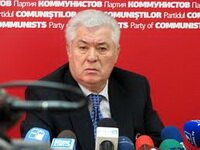 |
| The leader of the opposition Party of Communists of the Republic of Moldova (PCRM), Vladimir Voronin: Moldova's accession to the Customs Union answers the interests of preserving Moldova's statehood http://forum.md/ |
At the same time, the Russian side has come to openly supporting Moldovan political forces that favor integration of Moldova with Russia. Thus, for the first time in many years, in June this year to the Russian television was let the leader of the opposition Communist Party of Moldova V. Voronin, who in tough and actually rough manner spoke against the accession of Moldova to the EU, and called on Moldovan population to the Eurasian integration (funny that the Statute of the Communist party of Moldova provides for European, not Eurasian choice of Moldova). Moreover, V. Voronin already predicts a new revolution in Moldova, which will result in his political party returning to power.
Apart from this, under the influence of Moscow, which ensures the existence of TMR, the idea of Eurasian integration was enshrined as the main priority of the new foreign policy concept of the self-proclaimed Trans- Dniester Moldovan Republic.
 |
| Does Gagauzia want independence from Moldova or dependence on Russia? http://www.turkist.org/ |
Powerful factor of pressure on the leadership of Moldova and destabilization of the situation at its territory is also a revitalization of separatist forces of Gagauzia, which aim to create additional barriers to European integration of the country. Thus, in June of this year a number of members of the National Assembly of Gagauzia initiated petition to hold a referendum on the question of autonomy's disintegration from the Republic of Moldova. The mentioned above idea was openly supported by the leadership of the Trans-Dniester and Russian media, which began large-scale provoking of new tensions in Moldova.
This fully confirms the coherent neo-imperial policy of the Russian Federation, under which are being taken all possible measures for the return of countries of the former Soviet Union into the orbit of Russian influence and for creation of obstacles on their way to European integration.
Such activities of Moscow get further acceleration as comes nearer the Summit of “Eastern Partnership” of the EU in Vilnius, which is to consolidate the European prospects of Ukraine, Moldova and Georgia within the framework of the Association Agreement and the establishment of free trade area with the European Union. Taking into consideration how critical the mentioned above issues are for Russia, the latter won't stop before any opportunity to achieve its goals, including disintegration and split of CIS countries, which shows the current situation around Moldova.

